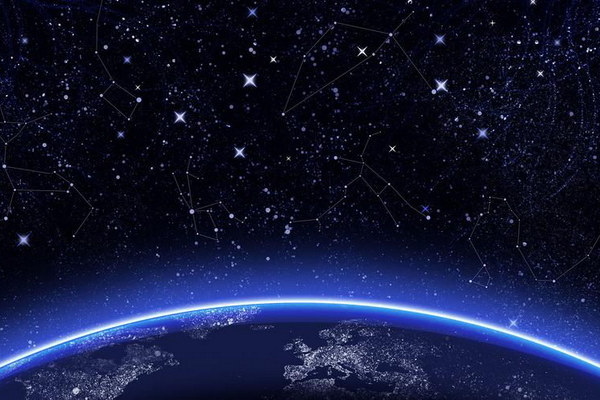Единое во многом
Высшее "Я" соответствует всему самому лучшему в нас, поэтому оно любит изначально.
Низшее "я" противоположно высшему, поэтому сила его любви возрастает лишь по мере
его отождествления с высшим "Я". В те моменты, когда они совпадают, о человеке
говорят, что он действует по воле Божьей. Но в такие моменты воля Бога является
его собственной, внутренней, а не навязываемой извне. Поэтому она сопровождается
ощущением абсолютной свободы, как при вдохновении свыше (когда человек, по сути,
становится молниеносным, а иногда и молниевидным воплощением Бога).
Христианская Троица "Отец-Сын-Дух" отличается от Троицы "Бхагаван-Атман-Брахман"
лишь приданием исключительного статуса высшему "Я" земного Иисуса из Назарета.
Никто не задаётся вопросом: а где пребывает Иисус Христос после своего воскрешения
и вознесения? Где Он находится прямо сейчас, в эту самую секунду?
Ответ: (в Царстве Божьем, которое внутри нас, то есть) в сердце каждого живого
существа, в виде его высшего "Я", которое является одной из трёх ипостасей Единого
ВЕЗДЕСУЩЕГО (!) Бога, и которое кришнаиты называют параматмой (высшей душой).
Иисус Христос – это высшее "Я" каждого живого существа. Отсюда Его предложение
возлюбить своих врагов и ближних, "как самого себя". Формально апостол Павел
ничего не нарушил. Будучи ипостасью единого Бога, высшее "Я" одно-единственное.
Но оно одно и то же ВО ВСЕХ живых существах.
(2021)
* * *
THE SAME IN EACH AND EVERY
The higher "I" of a person corresponds to all the best in it.
The higher "I" always loves the whole world (like God Himself does).
The lower "I" (or ego*) is opposite to the higher "I". It loves the world
just as much as it identifies itself with the higher "I".
__________
* The Latin word "ego" comes from the ancient Greek "ego" and literally means "I".
At those rare moments when ego and higher "I" completely coincide, such an
integral person is said to be acting according to the will of God.
But at such moments the will of God is internal, not external, imposed from the
outside. That's why it is accompanied by a feeling of absolute freedom, as in a
state of poetic inspiration from above (when a person, in fact, becomes a
lightning-fast, and sometimes lightning-like embodiment of God).
The Christian Trinity "Father-Son-Spirit" differs from the Hindu Trinity
"Bhagavan-Atman-Brahman" only by giving an exclusive status to the higher "I"
of the earthly Jesus of Nazareth.
No one asks the question: where does Jesus Christ remain after his resurrection
and ascension? Where is He right now, this very second?..
Answer: in the Kingdom of God, which is inside us, that is, inside the heart
of every living being, in the form of higher "I", which is one of the three
hypostases of omnipresent God.
Jesus Christ is the higher "I" of every living being (including atoms, the
internal movement of which makes them alive).
Formally, apostle Paul did not violate anything. As the hypostasis of the only
one God, the higher "I" is one and only. But it is the same in each and every
living being.
(2021)
Низшее "я" противоположно высшему, поэтому сила его любви возрастает лишь по мере
его отождествления с высшим "Я". В те моменты, когда они совпадают, о человеке
говорят, что он действует по воле Божьей. Но в такие моменты воля Бога является
его собственной, внутренней, а не навязываемой извне. Поэтому она сопровождается
ощущением абсолютной свободы, как при вдохновении свыше (когда человек, по сути,
становится молниеносным, а иногда и молниевидным воплощением Бога).
Христианская Троица "Отец-Сын-Дух" отличается от Троицы "Бхагаван-Атман-Брахман"
лишь приданием исключительного статуса высшему "Я" земного Иисуса из Назарета.
Никто не задаётся вопросом: а где пребывает Иисус Христос после своего воскрешения
и вознесения? Где Он находится прямо сейчас, в эту самую секунду?
Ответ: (в Царстве Божьем, которое внутри нас, то есть) в сердце каждого живого
существа, в виде его высшего "Я", которое является одной из трёх ипостасей Единого
ВЕЗДЕСУЩЕГО (!) Бога, и которое кришнаиты называют параматмой (высшей душой).
Иисус Христос – это высшее "Я" каждого живого существа. Отсюда Его предложение
возлюбить своих врагов и ближних, "как самого себя". Формально апостол Павел
ничего не нарушил. Будучи ипостасью единого Бога, высшее "Я" одно-единственное.
Но оно одно и то же ВО ВСЕХ живых существах.
(2021)
* * *
THE SAME IN EACH AND EVERY
The higher "I" of a person corresponds to all the best in it.
The higher "I" always loves the whole world (like God Himself does).
The lower "I" (or ego*) is opposite to the higher "I". It loves the world
just as much as it identifies itself with the higher "I".
__________
* The Latin word "ego" comes from the ancient Greek "ego" and literally means "I".
At those rare moments when ego and higher "I" completely coincide, such an
integral person is said to be acting according to the will of God.
But at such moments the will of God is internal, not external, imposed from the
outside. That's why it is accompanied by a feeling of absolute freedom, as in a
state of poetic inspiration from above (when a person, in fact, becomes a
lightning-fast, and sometimes lightning-like embodiment of God).
The Christian Trinity "Father-Son-Spirit" differs from the Hindu Trinity
"Bhagavan-Atman-Brahman" only by giving an exclusive status to the higher "I"
of the earthly Jesus of Nazareth.
No one asks the question: where does Jesus Christ remain after his resurrection
and ascension? Where is He right now, this very second?..
Answer: in the Kingdom of God, which is inside us, that is, inside the heart
of every living being, in the form of higher "I", which is one of the three
hypostases of omnipresent God.
Jesus Christ is the higher "I" of every living being (including atoms, the
internal movement of which makes them alive).
Formally, apostle Paul did not violate anything. As the hypostasis of the only
one God, the higher "I" is one and only. But it is the same in each and every
living being.
(2021)
Метки:









